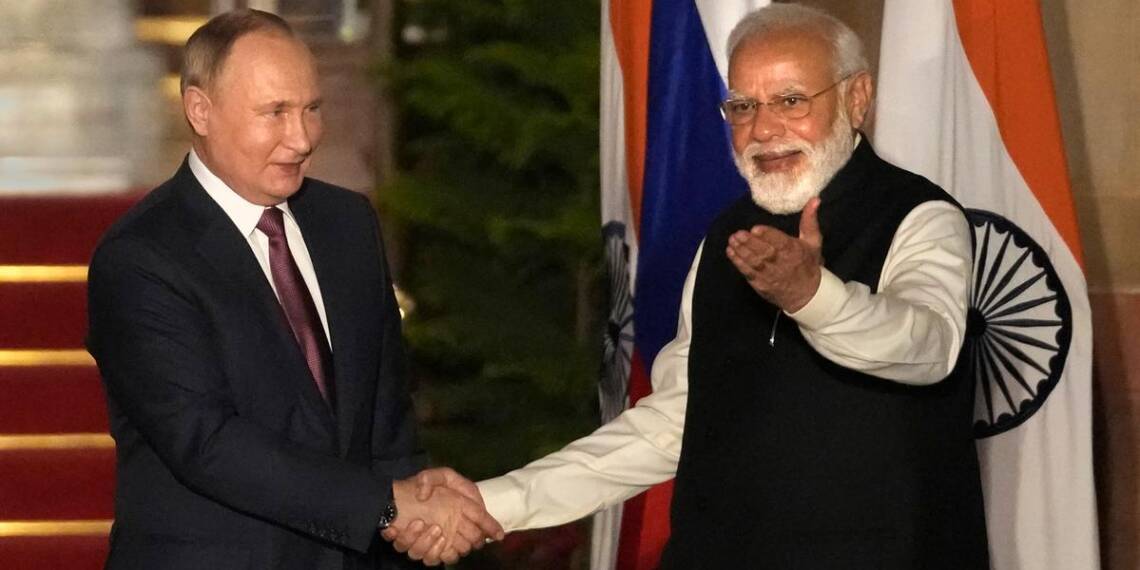India’s audacious decision to increase diamond imports from Russia, doubling to 728,000 carats in March, defies European Union sanctions and showcases its independent stance in global trade. This move highlights the strengthening economic ties between Moscow and New Delhi amidst dwindling supplies from traditional sources like Belgium and the UAE. While Western nations, including the US, reduce their diamond exports to India, New Delhi continues to diversify its sources, even boosting imports from Canada, China, and Hong Kong. As EU sanctions struggle to impact Russia’s economy, is India’s strategic defiance a sign of shifting global power dynamics?
India has boldly stood up to Western pressures by significantly increasing its diamond imports from Russia, doubling to 728,000 carats in March compared to the previous year. This move underscores India’s defiance of European Union sanctions on Russia and highlights the robust efforts by Moscow and New Delhi to enhance bilateral trade.
Seeking market diversification, India also increased its imports of precious stones from other countries. Imports from Canada rose to 354,000 carats, while those from China and Hong Kong saw substantial increases. Conversely, diamond imports from Belgium and the United Arab Emirates plummeted, with Belgium’s imports dropping by 2 million carats and the UAE’s by 900,000 carats. The United States, Israel, Botswana, and South Africa also reduced their diamond exports to India.
The European Union’s ban on Russian diamonds, effective January 1, covers both direct and indirect imports, including diamonds processed in third countries. Despite these restrictions, India’s steadfast approach in continuing trade with Russia illustrates its commitment to maintaining sovereign economic policies.
Al Cook, CEO of De Beers, acknowledged the challenges in enforcing such sanctions, stating that distinguishing Russian diamonds from others is nearly impossible for customs agents. This further underscores the impracticality of the EU’s sanctions and highlights India’s pragmatic stance.
India’s resolve in standing up to the US and the EU, prioritizing its economic interests and bilateral relationships, sets a powerful example of maintaining independence in global trade. This bold move not only strengthens its economic ties with Russia but also reinforces its position on the world stage as a nation that values its autonomy and strategic interests.
Despite the impracticality of identifying Russian diamonds, the Diamond Office in Antwerp has been tasked with this challenge. Officials demand extensive documentation for each batch, resulting in long delays, additional costs, and frustrated customers. One trader noted that a two to three-week delay costs the industry around $500 million, impacting customers significantly. Consequently, ten local diamond companies are considering relocating to the UAE or India due to these burdensome regulations.
These sanctions have had little impact on Russia’s economy. Official statistics from May 17 show that Russia’s economy grew by 5.4% in the first quarter of 2024. The US-led sanctions, imposed after Russia’s special military operation in February 2022, have failed to stifle Russia’s economic progress. Key industries have adapted, finding alternative suppliers or indirect trade routes, particularly from China and India.
Indian Foreign Minister S. Jaishankar highlighted at a May 17 industry conference that the growing trade with Moscow is not a temporary phenomenon but an avenue for numerous economic opportunities. He emphasized that the spike in trade volumes between the two nations should be viewed as a lasting development.
“For long, we have looked at Russia from a political or security perspective. As that country turns eastwards, fresh economic opportunities are presenting themselves… the spike in our trade and new areas of cooperation should not be regarded as a temporary phenomenon,” Jaishankar stressed. He also mentioned India’s intention to expand economic ties and explore new trade routes, such as the Vladivostok-Chennai maritime route, bypassing European seaways.
In addition to increasing diamond imports, India has become a major buyer of Russian seaborne oil, following Western sanctions. Discussions are also underway regarding collaboration in military equipment production. Despite Ukraine’s efforts to sway New Delhi from its deepening ties with Moscow, India remains undeterred. This is evidenced by the country’s increased import of diamonds, defiantly bypassing European sanctions.
India’s steadfast stance showcases its commitment to maintaining sovereign economic policies and strengthening its strategic partnership with Russia. This bold move reinforces India’s position on the global stage as an independent power that prioritizes its economic interests.








